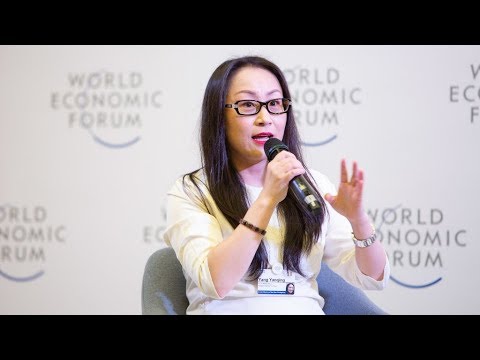Description:
Explore the potential of blockchain technology in revolutionizing global supply chains in this World Economic Forum panel discussion. Discover how distributed ledger technologies can address inefficiencies, enhance transparency, and improve interoperability in international trade. Learn about smart contracts for physical goods, customs and tariffs payments at ports, and trade finance standards for machine-to-machine transactions. Gain insights from industry experts as they discuss practical use cases, macroeconomic impacts, and the role of blockchain in creating a paperless supply chain ecosystem. Examine the challenges and opportunities in implementing blockchain solutions, including governance issues, regulatory concerns, and the need for standardization. Delve into the economics of blockchain, its relationship with the internet, and its potential to transform data business models. Understand how governments and regulatory bodies are approaching blockchain adoption in supply chains and the importance of achieving regulatory certainty for widespread implementation.
Read more

Blockchain for Supply Chains
Add to list
#Conference Talks
#World Economic Forum
#Computer Science
#Blockchain Development
#Business
#Supply Chain Management
#Smart Contracts
#Finance
#Fintech
#Cryptocurrency
#Digital Currencies